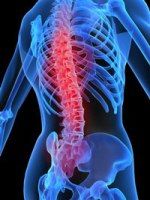NovImmune successfully completes NI-0801 Phase I clinical study
Advertisement
NovImmune announced the successful completion of the first phase I clinical study with its fully human monoclonal antibody NI-0801 targeting the chemokine IP-10 (CXCL10) in healthy volunteers. The randomized, double-blinded, placebo controlled, single centre, phase I study of escalating single intravenous doses of NI-0801 in healthy volunteers (study NI-0801-01) demonstrated that NI-0801 is well tolerated at doses up to and including 20mg/kg.
Chemokines are a group of low molecular weight proteins that induce the chemotaxis of different leukocytes to sites of injury or infection. IP-10 is constitutively expressed at low levels in thymic, splenic and lymph node stroma tissues, but its expression can be induced on a variety of cell types including endothelial cells, keratinocytes, fibroblasts, monocytes and neutrophils. IP-10 not only mediates leukocyte recruitment, but also drives T-cell proliferation upon antigenic stimulation. Cell migration in response to chemoattractants requires the retention of IP-10, which is also true for all other chemokines, in the vicinity of the site of inflammation to make sure cells are recruited where they are needed.
IP-10 expression at sites of inflammation, leads to local accumulation of specialized cells responsible for the inflammation process in a number of different autoimmune conditions including psoriasis, multiple sclerosis, ulcerative colitis, rheumatoid arthritis, atherosclerosis, liver fibrosis and sarcoidosis. Dr Penelope Ward, Chief Medical Officer commented that ‘since increased IP-10 (CXCL10) levels correlate with disease severity, an ability to neutralize its effects with a target specific monoclonal antibody offers a promising strategy for the treatment of diseases such as liver fibrosis and lupus, for which therapeutic options are currently limited.'

















































